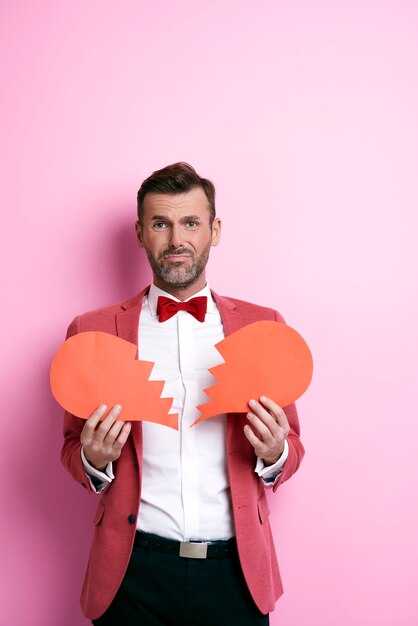Some people and certain circumstances can completely override your common sense — even if you didn’t grow up with trauma. You can be navigating life fine, seeing things clearly, making sound choices, and then one person appears and it’s like they cast a spell: they destabilize you with subtle cues that something is off, and you begin to doubt your own judgment. Instead of thinking straight, your mind freezes and denial creeps in. I’m not a clinician, but I have recovered from being involved with people who lied to me, and I now help others gain clarity and leave those relationships. Today’s letter comes from a woman I’ll call Evangeline, who writes: Hi Anna — I’ve been in a relationship for six months and recently moved in with my boyfriend. We come from different countries, I work remotely, and it made practical sense for me to take this step. (I’ll mark a few parts to revisit on a second read.) Here’s what Evangeline shares about her situation: I’ve known my boyfriend for 16 years; he had a crush on me since high school, but I only ever saw him as a friend, so we built a strong friendship. Nine years ago we lost touch because he didn’t want to remain friends; right before that we tried dating briefly and I wanted to go back to being just friends — immature on my part, she admits — and she feels she led him on. Two years ago we reconnected after he learned from a mutual friend that I’d had cancer; he reached out to apologize for cutting me off. He was also struggling with alcoholism and in rehab, having lost three jobs in a year. When he contacted me last year I felt overwhelmed by his problems and tried to support him while not letting his issues become mine, since I was mentally fragile after cancer. Eventually he returned home to sort things out — we’re from the same country and he was in my city — and when we met it felt good. We supported each other, he went back to where he lives, we stayed in touch, and after a few months we took a short trip together because I needed a break from heavy family stress. I told him I would go only if we had no expectations about turning this into something more; he reassured me and the trip was wonderful. After that trip my feelings shifted and I began to feel romantically attracted to him. We had an easy friendship before, so it wasn’t surprising. I tried not to start a relationship because he was newly sober and needed to focus on himself, but we did begin dating and six months in I moved in with him. Just before moving in I had a tight, awful feeling in my stomach — a sense he was hiding something — and I worried I shouldn’t be moving in. I have generalized anxiety disorder and I tried to dismiss the feeling, though I’ve always found him kind, compassionate and very sensitive; he’s struggled with an extremely messy childhood and family situation. We say we love each other and see a future, but a few problems have surfaced. Two weeks after moving in he started acting secretive with his phone. I hadn’t noticed anything like that before. I confronted him a few times, and yesterday he broke down, saying he’s trying to remove any possible triggers that might set me off. He’d told me weeks earlier that during his addiction he’d seen sex workers because he couldn’t form proper relationships, and that paired with his mental health struggles made relationships impossible then. When I pointed out that something between us had reminded me of an old episode of being cheated on, he became defensive, calling my suspicions unfair. His agitation around his phone escalated whenever I raised it: switching to Do Not Disturb, leaving one of his phones in the living room overnight, declining calls on his work line on a Saturday night, and so on. Yesterday he cried and said he’s terrified I’ll judge him for his past; he feels awful about what he did and hasn’t made peace with it. He’s 34 and has never had a real relationship, so he doesn’t have a firm model for partnership; he says he always pictured only me and that I was the only one who could understand him. I grew up with an alcoholic father, and sometimes I worry I’ve picked the very thing I spent my life trying to avoid. His childhood was turbulent too: his parents fought constantly because his mother was extremely jealous, and he says he thought this was precisely what he wanted to escape — yet it’s repeating itself now. I told him I don’t think he’s currently cheating, but I do suspect he’s concealing something — maybe a connection from his past that’s even platonic. He has lied to me once about quitting smoking because he feared how I’d react, and since then my trust has been altered. I feel doubtful and sometimes think he’s too afraid of upsetting or losing me to tell me the truth. I keep wondering if I made a mistake moving in with him in a foreign country where I don’t know anyone. What do you think, Anna? This is a tough situation. It’s notable when friendships drift into romance organically, as yours did after years of acquaintance and then that trip together, but several worrisome signs are present. You’ve been dating six months and moved in — that timeline, given the history, is significant. You’ve known him 16 years, he liked you long before you reciprocated, and at one point you tried to date and backed away; you call that immature, but many people experiment and change their minds, and that’s a normal part of relationships. After your cancer, when he reached out to apologize and you reconnected, his alcoholism and instability — losing three jobs in a year — should have signaled that getting entangled emotionally might be risky while you were still fragile yourself. You did the wise thing trying to support him without becoming responsible for his recovery, though circumstances led you to become closer. Taking a trip together can reveal the reality of a relationship, and if one person has been pining for the other, it’s hard for them not to have expectations. You set a boundary before the trip — no expectations — but people in his position, especially someone newly sober who’s never had a stable partnership, often cannot hold that boundary. They promise what you want to hear, but their emotional intensity makes it difficult for them to refuse. You say you started feeling attracted to him after the trip, even though you knew a newly sober partner can be destabilized by entering a relationship; often, dating someone early in sobriety is not safe for either person because it can trigger relapse. Moving in after six months adds pressure and creates practical barriers to stepping back; cohabitation can simulate commitment without the mutual readiness for it, and that can deepen hurt instead of allowing the relationship to grow naturally. Your gut unease before moving in — the clench in your stomach — was meaningful, and dismissing those instincts because of anxiety can be costly. Although his kindness and sensitivity are real, a difficult childhood does not justify deceptive or defensive behavior in the present; how someone acts now is the clearest indicator of what life with them will be like. Hiding things early on contradicts the transparency necessary for long-term commitment. His secretive phone habits two weeks after you moved in are alarming — there are few innocent reasons for that level of concealment. When he explained the secrecy as an attempt to avoid triggering you because of admissions about past encounters with sex workers, that answer raises more questions. If he were truly stable in recovery and processing his past, he wouldn’t need to hide or resort to sneaky behaviors; those are classic red flags in both addiction recovery and relationship trustworthiness. Sneaky behavior indicates unresolved issues and increases the risk of relapse. You mentioned that when you raised concerns about being reminded of being cheated on, he became defensive, claiming your suspicion was unfair and escalating his secrecy. Turning on Do Not Disturb, stashing phones, and declining calls are avoidant patterns consistent with someone trying to keep something hidden — whether it’s contact with sex workers, drug use, pornography, or other secretive communications. His tears and fear that you’ll think less of him are understandable emotionally, but making you responsible for managing his shame and protecting him from judgment is not a healthy dynamic. He hasn’t had previous relationships, he feels inadequate, and he leans on you as the only person he’s ever imagined a life with — that intensity, combined with an alcoholic history and immature relationship skills, suggests he isn’t ready to offer the steadiness a partner needs. Your shared background of family alcoholism creates a bond, but it can also reproduce the patterns you tried to escape. You don’t need to reassure him that you don’t think he’s cheating; rather, your priority should be getting clear about what’s happening and protecting your own safety. Lying about small things like quitting smoking matters not because of the habit itself but because the deceit alters trust. His fear of your reaction and his pattern of hiding are behaviors you’re reacting to, and you’re justified in wanting the truth. His explanation that he’s too frightened to tell you doesn’t excuse dishonesty — partners should be able to be honest without living in fear of abandonment. You asked what to do: trust your instincts. Your anxiety might sometimes amplify concerns, but the secrecy must stop. This man currently appears unable to be the reliable partner you need; the situation seems chaotic, and there are signs he may be drinking, using, or engaging in other secret activities. Whatever the exact content of his phone activity — sex workers, drugs, porn, or online deception — it doesn’t bode well for a healthy relationship. You need outside support: someone to reflect with who isn’t part of the relationship, to help you figure out where you might be overlooking your own intuition and where your concerns are grounded. Healing tools are important, especially with a family history of alcoholism; mutual-aid groups (like 12-step family programs) can provide free, honest community support and were instrumental for many who grew up in alcoholic households. Therapy is also helpful. Don’t silence your feelings: find a trusted person to process with so you can be measured in conversations with him and set clear boundaries. You’re not responsible for fixing his avoidance or for soothing his shame; his sneaky behavior and dishonesty are not caused by you. After cancer, minimizing stress and protecting your recovery is crucial — introducing someone who undermines your sense of safety is risky. If you want more guidance about spotting red flags, there are resources outlining common warning signs that can help you assess people more clearly. Take care and don’t ignore the signals your body and mind have been giving you.



 What to Do When You Think Your Partner is Lying">
What to Do When You Think Your Partner is Lying">

 The 5 Stages of a Dismissive Avoidant’s Mind When You Go Silent">
The 5 Stages of a Dismissive Avoidant’s Mind When You Go Silent">
 What To Do When Someone Makes You Feel Creeped Out">
What To Do When Someone Makes You Feel Creeped Out">
 Avoidants Texted You After Silence? This Brutal Reply Will Destroy Them | Jordan Peterson">
Avoidants Texted You After Silence? This Brutal Reply Will Destroy Them | Jordan Peterson">
 Why does the Anxious partner have to sacrifice for the Avoidant?">
Why does the Anxious partner have to sacrifice for the Avoidant?">
 Anxious Attachment leads to Heartbreak until you do this…">
Anxious Attachment leads to Heartbreak until you do this…">
 The Hidden TRUTH: Why Avoidants Disrespect You – How to Pass Their TEST | Avoidant Attachment Style">
The Hidden TRUTH: Why Avoidants Disrespect You – How to Pass Their TEST | Avoidant Attachment Style">
 제임스 페네베이커 박사 인터뷰
Dr. James Pennebaker">
제임스 페네베이커 박사 인터뷰
Dr. James Pennebaker">
 어디서든 재규정하기 위해 이러한 긴급 조치를 시도해 보세요">
어디서든 재규정하기 위해 이러한 긴급 조치를 시도해 보세요">
 아내를 돕는 것을 그만두세요.">
아내를 돕는 것을 그만두세요.">
 혹독한 신호(당신이 보내고 있다는 사실을 깨닫지 못하는)는 남자를 밀어냅니다.">
혹독한 신호(당신이 보내고 있다는 사실을 깨닫지 못하는)는 남자를 밀어냅니다.">